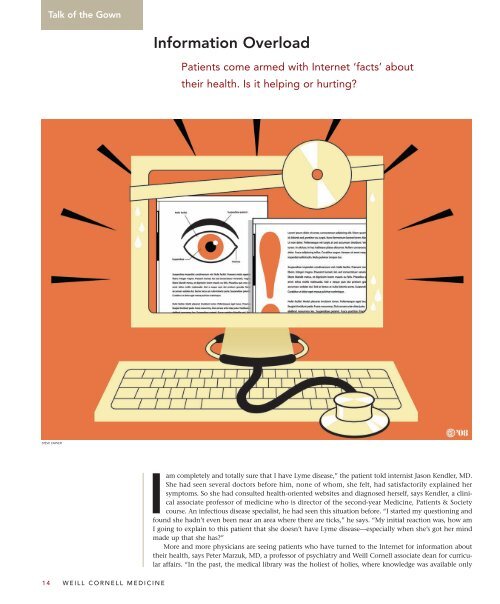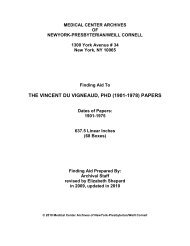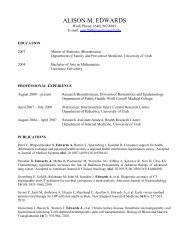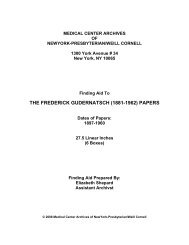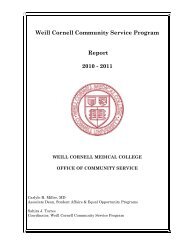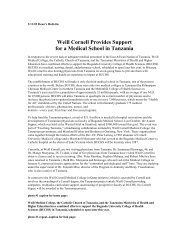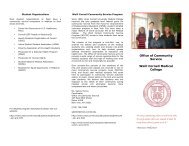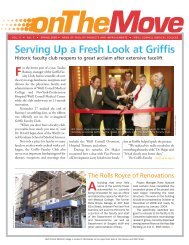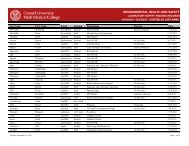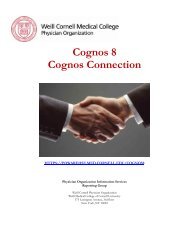Weillcornellmedicine - Weill Medical College - Cornell University
Weillcornellmedicine - Weill Medical College - Cornell University
Weillcornellmedicine - Weill Medical College - Cornell University
You also want an ePaper? Increase the reach of your titles
YUMPU automatically turns print PDFs into web optimized ePapers that Google loves.
Talk of the Gown<br />
STEVE CARVER<br />
14 WEILL CORNELL MEDICINE<br />
Information Overload<br />
Patients come armed with Internet ‘facts’ about<br />
their health. Is it helping or hurting?<br />
Iam completely and totally sure that I have Lyme disease,” the patient told internist Jason Kendler, MD.<br />
She had seen several doctors before him, none of whom, she felt, had satisfactorily explained her<br />
symptoms. So she had consulted health-oriented websites and diagnosed herself, says Kendler, a clinical<br />
associate professor of medicine who is director of the second-year Medicine, Patients & Society<br />
course. An infectious disease specialist, he had seen this situation before. “I started my questioning and<br />
found she hadn’t even been near an area where there are ticks,” he says. “My initial reaction was, how am<br />
I going to explain to this patient that she doesn’t have Lyme disease—especially when she’s got her mind<br />
made up that she has?”<br />
More and more physicians are seeing patients who have turned to the Internet for information about<br />
their health, says Peter Marzuk, MD, a professor of psychiatry and <strong>Weill</strong> <strong>Cornell</strong> associate dean for curricular<br />
affairs. “In the past, the medical library was the holiest of holies, where knowledge was available only


